- Home
- Blake Crouch
Abandon
Abandon Read online
ABANDON
Also by Blake Crouch
Desert Places
Locked Doors
ABANDON
BLAKE CROUCH
Minotaur Books New York
This is a work of fiction. All of the characters, organizations, and events portrayed in this novel are either products of the author’s imagination or are used fictitiously.
ABANDON. Copyright © 2009 by Blake Crouch. All rights reserved. Printed in the United States of America. For information, address St. Martin’s Press, 175 Fifth Avenue, New York, N.Y. 10010.
www.minotaurbooks.com
ISBN-13: 978-0-312-53740-1
ISBN-10: 0-312-53740-9
First Edition: July 2009
10 9 8 7 6 5 4 3 2 1
This book is dedicated to Aidan Crouch.
ACKNOWLEDGMENTS
It’s been a long trek to reach the end of this book, and I owe a lot of people my gratitude. Rebecca and Aidan, for sharing me with this story. It isn’t always honeydew and sugarcanes living with a writer, but you guys are troupers and you’re my people. I love you both so much. Linda Allen, for your friendship and endless support when I needed it most. Michael Homler, for pushing me in the right directions and being as much of a perfectionist as I am. Anna Cottle and Mary Alice Kier, for your priceless insight in the final stages. Joe Konrath, Gregg Hurwitz, Marcus Sakey, and Scott Phillips, great writers and greater men, who gave me diamond-hard feedback and support when things were looking insurmountable. David Morrell needs his own page, but this will have to suffice: you’re a gentleman and an inspiration and I’m blessed to know you. Everyone in my local writers group—Suzanne Tyrpak, Terry Junttonen, Doug Walker, Shannon Richardson, Dinah Swan, Cacy Alexander, Gail Harris, Nina Moats, Haz Said, and Adam Watson. Early readers: Sandi Greene, Jordan Crouch, Clay and Susan Crouch, Judy Johnston, and Anne Marquard. Sally Richardson, Andy Martin, George Witte, and Kelley Ragland for making all this possible and putting me in the best of hands. Jeroen ten Berge, for your amazing creativity and love of books. Michael Richard, Joe Foster, Duane A. Smith, Marianne Fuierer, Art Holland, Karen Sway, and Clyde Gibbs for providing answers to questions I couldn’t hunt down in books. Diane Cerafici and Beverly Coleman at Rocky Mountain PBS for tracking down the quote. Carol Edwards for your virtuoso copyediting. The awesome baristas and kickass coffee at the Steaming Bean in Durango, Colorado, where much of this book was written. And finally, group hug with the Jordans—Jon, Ruth, and Jen—thanks for having my back and for your friendship.
In the West, the past is very close. In many places, it still believes it’s the present.
—JOHN MASTERS
Thursday, December 28, 1893
W
ind rips through the crags a thousand feet above, nothing moving in this godforsaken town, and the mule skinner knows that something is wrong. Two miles south stands Bartholomew Packer’s mine, the Godsend, a twenty-stamp mill that should be filling this box canyon with the thudding racket of the rock crushers pulverizing ore. The sound of the stamps in operation is the sound of money being made, and only two things will stop them—Christmas and tragedy.
He dismounts his albino steed, the horse’s pinked nostrils flaring, dirty mane matted with ice. The single-rig saddle is snow-crusted as well, its leather and cloth components—the mochila and shabrack—frozen stiff. He rubs George’s neck, speaking in soft, low tones he knows will calm the animal, telling him he did a good day’s work and that a warm stable awaits with feed and fresh water.
The mule skinner opens his wallet, collects the pint of busthead he bought at a bodega in Silverton, and swallows the remaining mouthful, whiskey crashing into his empty stomach like iced fire.
He wades through waist-deep snow to the mercantile, bangs his shop-mades on the door frame. Inside, the lamps have been extinguished and the big stove squats dormant in the corner, unattended by the usual constellation of miners jawboning over coffee and tobacco. He calls for the own er as he crosses the board floor, moving between shelves, past stacked crates and burlap sacks bulging with sugar and flour.
“Jessup? It’s Brady! You in back?”
The twelve burros crane their scrawny necks in his direction when Brady emerges from the merc. He reaches into his greatcoat, pulls out a tin of Star Navy tobacco, and shoves a chaw between lips and gums gone blackish purple in the last year.
“What the hell?” he whispers.
When he delivered supplies two weeks ago, this little mining town was bustling. Now Abandon looms listless before him in the gloom of late afternoon, streets empty, snow banked high against the unshoveled plank sidewalks, no tracks as far as he can see.
The cabins scattered across the lower slopes lie buried to their chimneys, and with not a one of them smoking, the air smells too clean.
Brady is a man at home in solitude, often spending days on the trail, alone in wild, quiet places, but this silence is all wrong—a lie. He feels menaced by it, and with each passing moment, more certain that something has happened here.
A wall of dark clouds scrapes over the peaks, and snowflakes begin to speck the sleeves of his slicker. Here comes the wind. Chimes clang together over the doorway of the merc. It will be night soon.
He makes his way up the street into the saloon, still half-expecting Joss Maddox, the beautiful barkeep, to assault him with some gloriously profane greeting. No one’s there. Not the mute piano player, not a single customer, and again, no light from the kerosene lamps, no warmth from the potbellied stove, just a half-filled glass on the pine bar, the beer frozen through.
The path to the nearest cabin lies beneath untrodden snow, and without webs, it takes five minutes to cover a hundred yards.
He pounds his gloved fist against the door, counts to sixty. The latch string hasn’t been pulled in, and despite the circumstance, he still feels like a trespasser as he steps inside uninvited.
In the dark, his eyes strain to adjust.
Around the base of a potted spruce tree, crumpled pages of newspaper clutter the dirt floor—remnants of Christmas.
Food languishes untouched on a rustic table, far too lavish to be any ordinary meal for the occupants of this cramped one-room cabin. This was Christmas dinner.
He removes a glove, touches the ham—cold and hard as ore. A pot sits there, the beans frozen in their broth. The cake feels more like pumice than sponge, and two jagged glass stems still stand upright, the wine having frozen and shattered the crystal cups.
Outside again, back with his pack train, he shouts, turning slowly in the middle of the street so the words carry in all directions.
“Anyone here?”
His voice and the fading echo of it sound so small rising against the vast, indifferent sweep of wilderness. The sky dims. Snow falls harder. The church at the north end of town disappears in the storm.
It’s twenty-seven miles back to Silverton, and the pack train has been on the trail since before first light. The burros need rest. Having driven mules the last sixteen hours, he needs it, too, though the prospect of spending the night in Abandon, in this awful silence, unnerves him.
As he slips a boot into the stirrup, ready to take the burros down to the stables, he notices something beyond the cribs at the south end of town. He urges George forward, trots through deep powder between the false-fronted buildings, and when he sees what caught his eye, he whispers, “You old fool.”
Just a snowman scowling at him, spindly arms made of spruce branches, pine cones for teeth and eyes, garland for a crown.
He tugs the reins, turning George back toward town, and the jolt of seeing her provokes, “Lord God Amighty.”
He drops his head, tries to allay the thumping of his heart in the thin air. When he looks up again, the young girl is still there, perhaps six or seven, a
pparition-pale and just ten feet away, with locomotive black curls and coal eyes to match—so dark and with such scant delineation between iris and pupil, they more resemble wet stones.
“You put a fright in me,” he says. “What are you doin out here all alone?” She backpedals.
“No, don’t be scart. I ain’t the bogeyman.” Brady alights, wades toward her through the snow. With the young girl in webs sunk only a foot in powder, and the mule skinner to his waist, he thinks it odd to stand eye-to-eye with a child.
“You all right?” he asks. “I didn’t think there was nobody here.”
The snowflakes stand out like white confetti in the child’s hair. “They’re all gone,” she says, no emotion, no tears, just an unaffected statement of fact.
“Even your ma and pa?”
She nods.
“Where’d they all go to? Can you show me?”
She takes another step back, reaches into her gray woolen cloak. The single-action army revolver is a heavy sidearm, and it sags comically in the child’s hand, so she holds it like a rifle. Brady is too surprised to do a thing but watch as she struggles with the hammer.
“Okay, I’ll show you,” she says, the hammer locked back, sighting him up, her small finger already in the trigger guard.
“Now hold on. Wait just a—”
“Stay still.”
“That ain’t no toy to point in someone’s direction. It’s for—”
“Killin. I know. You’ll feel better directly.”
As Brady scrambles for a way to rib up this young girl to hand him the gun, he hears its report ricocheting through the canyon, finds himself lying on his back, surrounded by a wall of snow.
In the oval of gray winter sky, the child’s face appears, looking down at him.
What in God’s—
“It made a hole in your neck.”
He attempts to tell her to stable George and the burros, see that they’re fed and watered. After all the work they put in today, they deserve at least that. Only gurgles emerge, and when he tries to breathe, his throat whistles.
She points the revolver at his face again, one eye closed, the barrel slightly quivering, a parody of aiming.
He stares up into the deluge of snowflakes, the sky already immersed in a bluish dusk that seems to deepen before his eyes, and he wonders, Is the day really fading that fast, or am I?
2009
ONE
A
bigail Foster stared through the windshield at the expired parking meter. Her fingers strangled the steering wheel, knuckles blanching, hands beginning to cramp. This had all seemed like such a good idea a month ago back in New York when she’d pitched the article to Margot, her editor at Great Outdoors. Now, on the verge of seeing him for the first time in twenty-six years, she realized she’d done herself the disservice of glossing over this moment and the fact that she’d have to walk into that building and face him.
Her watch showed five minutes to seven, which meant it was five to five, mountain time. She’d sat in this parking space for twenty minutes, and he was probably about to leave, thinking she’d decided not to come.
The hostess showed her toward the back of the brewpub, which at five in the afternoon stood mostly empty. Peanut shells littered the floor, crunching beneath the heels of her black pumps, and the reek of brewing beer infused the air with a yeasty sourness. The hostess held the back door open and motioned to the only occupied table on the patio.
Abigail stepped outside, smoothed the Cavalli skirt she’d paid way too much for last year in Milan.
The doubt resurfaced. She shouldn’t have come. No story was worth this.
He sat alone with his back to her at a west-facing table, with the town of Durango, Colorado, spread out before him in its high valley, specked with the icy yellows of cottonwood and aspen, enclosed by pine-wooded hills and bare shale hills and, farther back, the spruce forests and jagged peaks of the San Juans.
The sound of the patio door banging shut caught his attention. He looked over his shoulder, and at the sight of her, slid his chair back from the table and stood—tall, sturdy, wavy silver hair, dark blues, and dressed like something out of Backpacker magazine—plaid Patagonia button-up shirt tucked into a comfortable pair of jeans, Livestrong bracelet, Teva sandals.
She felt that knot constricting in her stomach again, noticed his left hand trembling. He seized the chair he’d been sitting in to steady it.
“Hi, Lawrence.”
She knew he was fifty-two, but he’d aged even better than his photo on the history department’s Web site indicated.
No handshake, no hug, just five seconds of what Abigail ranked as the most excruciating eye contact she’d ever held.
Easing down into a chair, she counted three empty pints on the table, wished she’d had the benefit of alcohol to steel herself for this meeting.
She rifled through her purse, found her sunglasses. It was Halloween, and though the air carried a chill, at this elevation the intensity of direct sunlight made it pleasant to sit outdoors.
“I’m glad you came,” Lawrence said.
A waiter costumed as a hula dancer approached the table.
“Want a beer, Abigail?”
“Sure.”
“They have a bunch of different—”
“I don’t care. Something light.”
He said to the waiter, “Bring her a Rock Hopped Pale.”
“Right on.”
The whistle of a steam-powered locomotive blew somewhere up the valley. Abigail saw the plume of smoke in the distance, heard the chugging palpitations of the valve gears as the train steamed south through the heart of town.
“I don’t have any backpacking gear,” she said.
“Scott will outfit you.”
“Who’s Scott?”
“Our guide.”
The silence, uncomfortable as it came, crawled under her skin.
“Pretty town you have here.”
She couldn’t help thinking this didn’t feel anything like she’d imagined it would. Having run countless versions of this moment through her head, they’d all carried more gravitas. She would scream at him. She’d hit him. They’d break down and cry together. He’d apologize. She’d accept. She wouldn’t. Now she understood none of that would happen. They were just two people sharing a table, trying to limp through the awkwardness.
“I’m curious,” she said. “All this time, and now you contact me.”
“I’ve followed your journalism career, subscribe to all the magazines you regularly contribute to, and I thought this . . . expedition . . . might be good fodder for your—”
“But you haven’t been interested in helping me since I was four years old.”
Lawrence slugged back the rest of his dark beer, stared at the mountains, wiped the foam from his beard.
Abigail said, “That came out more angry than—”
“No, it’s fine. You’ve got standing to be as angry as you want.”
“I’m not, though.”
The patio door opened and the waiter returned with Abigail’s pint and another round for Lawrence.
When he’d left, she raised her glass.
“Lawrence,” she said, “here’s to our past. Fuck it.”
He grinned. “That easy, huh?”
“We can pretend.”
They clinked pints and Abigail sipped her golden beer.
“So why’d you come?” Lawrence asked. “To be honest, I never expected a response to that E-mail.”
“Funny, I was just sitting out in the car, building the nerve to walk in here, and trying to answer that question for myself.”
The sun ducked behind the mountains and Abigail shivered, the rocky slopes and snowfields blushing with alpenglow.
TWO
A
t 4:30 the next morning, Abigail hurried across the parking lot of the Doubletree, moving toward a big Suburban, where four figures stood in the diseased light of a flickering streetlamp. The air was perfumed
with wet sage and resonant of the jabbering Animas River, which flowed behind the hotel.
They all turned at the sound of her footsteps, her eyes gravitating first to her father, then to the man standing beside him, who came only to his shoulders. His head was smooth-shaven and his beard, just beginning to fade in, matched the gray of his deep and thoughtful eyes.
“Emmett Tozer,” he said as they shook hands. “Guess you could say we’re responsible for this outing. Lawrence was nice enough to agree to take us out, share his expertise.”
“Abigail Foster, freelance journalist.” She turned to the woman holding Emmett’s arm. “June Tozer?”
June’s face lighted up and she took Abigail’s hand in both of hers. “Pleasure to meet you, Abigail.” She stood just over five feet, with a streak of white running down the middle of her chin-length brown hair. A sweet energy seemed to exude through June’s fingers. It made Abigail’s arm tingle, as if a gentle current were passing through.
“And I’m Scott Sawyer. I own Hinterlands, Inc. I’ll be your guide for this trip.”
Abigail shook the calloused hand of the beautiful man in a Phish T-shirt and torn khakis, instantly liking what she saw, a feeling she sensed he reciprocated. He was young, his hair bleached, probably just shy of thirty, and she discerned beneath his faded clothes the body of a seasoned outdoors-man.
They rode up toward the mountains in the dark, and Abigail was dreaming again before they left the city limits of Durango.
She slept soundly, and when she woke, the Suburban was ascending a steep, rocky road. Scott and Lawrence talked in the front seat, but their conversation seemed muffled. She swallowed. Her ears popped. The sounds of the straining engine and tires crunching over rocks came rushing in. Abigail sat up, rubbed her eyes. The dashboard clock read 6:01 A.M. The sky had lightened into dawn, and they were climbing through a canyon, the one-lane road following the path of a stream.

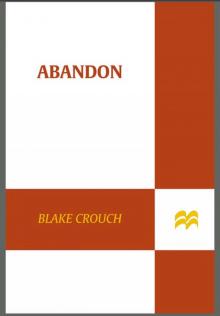 Abandon
Abandon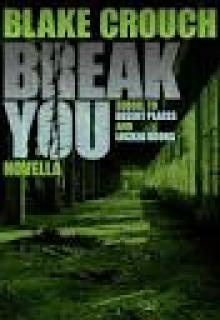 Break You
Break You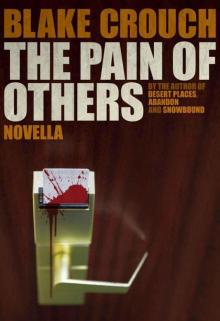 The Pain of Others
The Pain of Others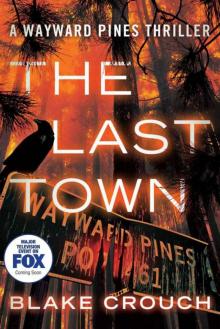 The Last Town
The Last Town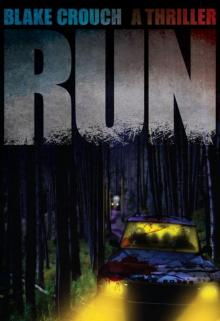 Run
Run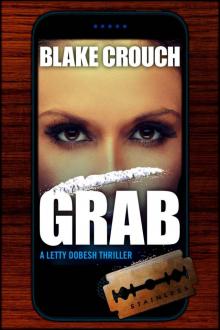 Grab
Grab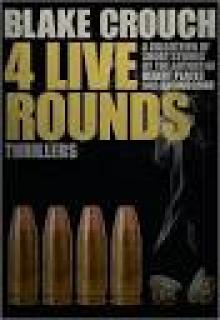 Four Live Rounds
Four Live Rounds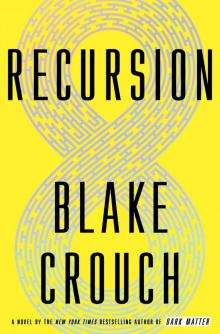 Recursion
Recursion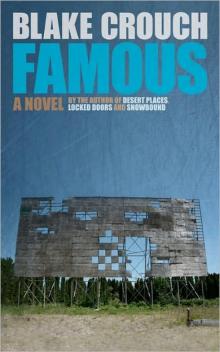 LUMINOUS BLUE: A Novel of Warped Celebrity
LUMINOUS BLUE: A Novel of Warped Celebrity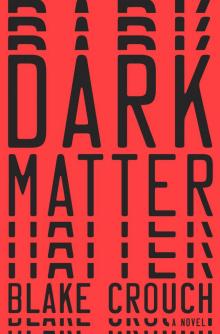 Dark Matter
Dark Matter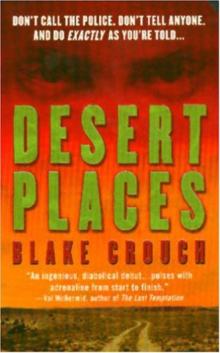 Desert Places
Desert Places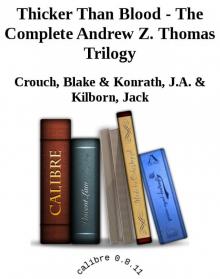 Thicker Than Blood - the Complete Andrew Z. Thomas Series
Thicker Than Blood - the Complete Andrew Z. Thomas Series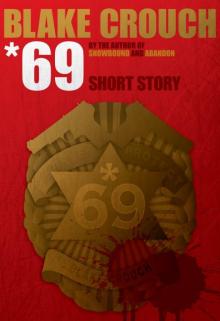 *69
*69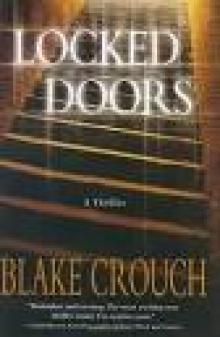 Locked Doors
Locked Doors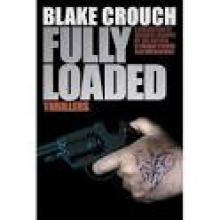 Fully Loaded Thrillers
Fully Loaded Thrillers![Summer Frost [Forward Collection] Read online](http://i1.bookreadfree.com/02/summer_frost_forward_collection_preview.jpg) Summer Frost [Forward Collection]
Summer Frost [Forward Collection]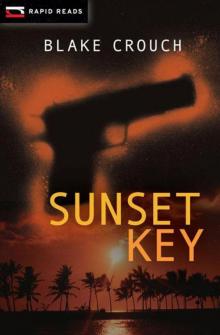 Sunset Key
Sunset Key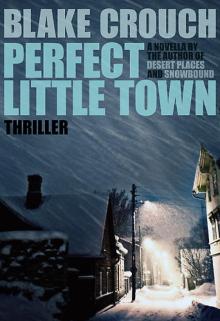 Perfect Little Town
Perfect Little Town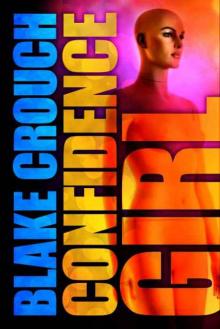 Confidence Girl
Confidence Girl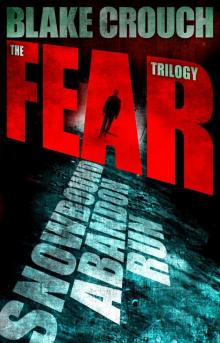 The Fear Trilogy
The Fear Trilogy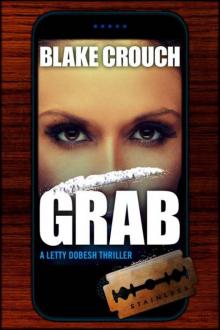 Grab ldm-3
Grab ldm-3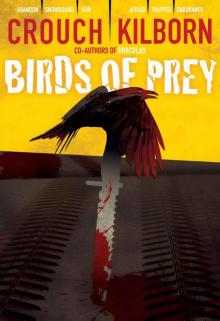 BIRDS OF PREY - A Psycho Thriller
BIRDS OF PREY - A Psycho Thriller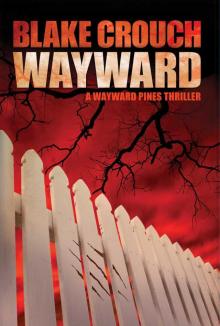 Wayward (The Wayward Pines Series, Book Two)
Wayward (The Wayward Pines Series, Book Two)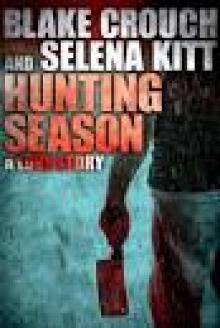 Hunting Season: A Love Story
Hunting Season: A Love Story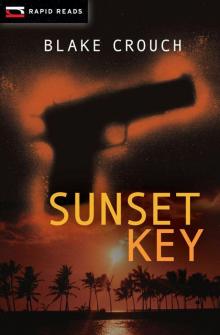 Sunset Key (Rapid Reads)
Sunset Key (Rapid Reads)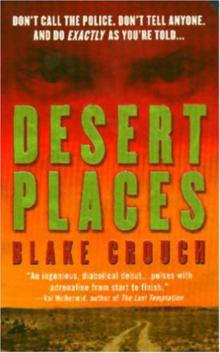 Desert Places: a Novel of Terror
Desert Places: a Novel of Terror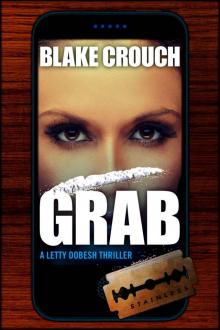 Grab (Letty Dobesh #3)
Grab (Letty Dobesh #3)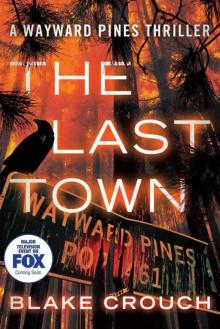 The Last Town (The Wayward Pines Trilogy 3)
The Last Town (The Wayward Pines Trilogy 3)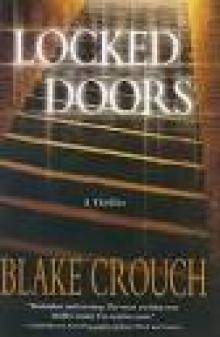 LOCKED DOORS: A Novel of Terror (Andrew Z. Thomas Thriller)
LOCKED DOORS: A Novel of Terror (Andrew Z. Thomas Thriller) BREAK YOU: A Novella of Terror (Prequel to Stirred) (Andrew Z. Thomas/Luther Kite)
BREAK YOU: A Novella of Terror (Prequel to Stirred) (Andrew Z. Thomas/Luther Kite)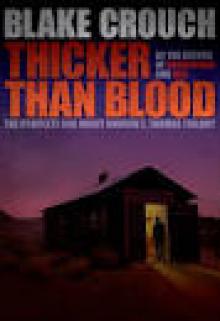 Thicker Than Blood - The Complete Andrew Z. Thomas Trilogy
Thicker Than Blood - The Complete Andrew Z. Thomas Trilogy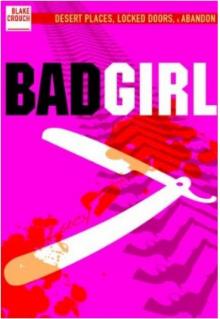 Bad Girl
Bad Girl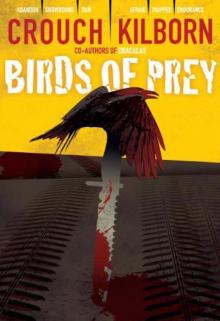 Birds of Prey
Birds of Prey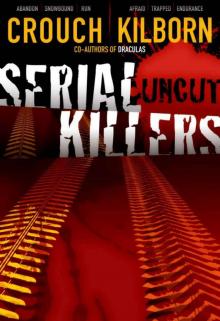 SERIAL KILLERS UNCUT - The Complete Psycho Thriller (The Complete Epic)
SERIAL KILLERS UNCUT - The Complete Psycho Thriller (The Complete Epic)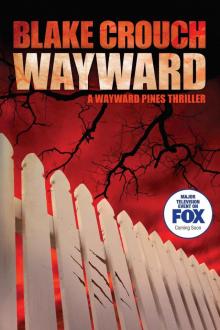 Wayward (The Wayward Pines Trilogy, Book 2)
Wayward (The Wayward Pines Trilogy, Book 2)